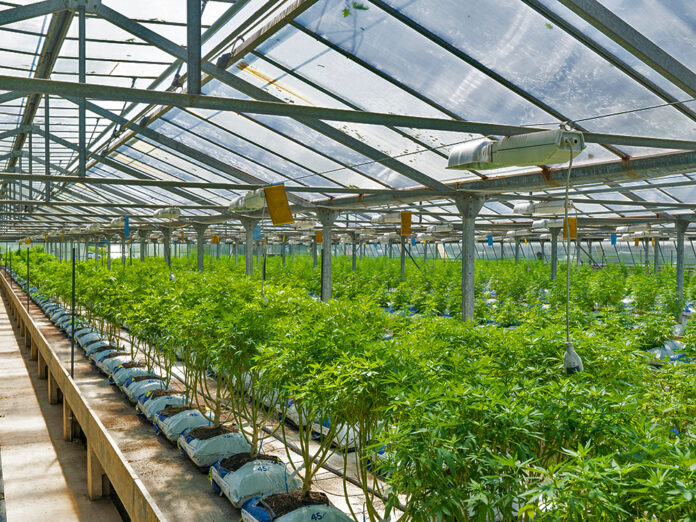
Anyone with hoping to buy marijuana in Maricopa some day should probably lower their expectations.
After voters in November legalized recreational use statewide, several city officials are expressing reluctance to allow dispensaries in town.
RELATED STORY: Courts, cops gear up for legalized pot
Currently, there are no restrictions on any potential dispensaries or other marijuana-related industries in town, according to City Manager Rick Horst.
“There are none for recreational marijuana,” he said. “Thus, the need for a work session and the promulgation of regulations.”
But Mayor Christian Price indicated approval was not immediately forthcoming and that city council would need that work session to learn more.
“We need to learn about the ins and outs of the whole issue, and get both sides of the argument,” he said.
According to Horst, a work session on the matter will be scheduled early this month. The city will need to determine which segments of the marijuana industry, if any, if it wants to allow in town, including retail sales (i.e., dispensaries), cultivation, storage, processing, testing, manufacturing and distribution.
Horst said councilmembers should move quickly once they have the necessary information.
“We need to get an ordinance in place,” he said during the city’s recent annual planning meeting. “I’d rather have you (the council) go too far (in limiting marijuana businesses) because we can contract our ordinances, but we can’t expand them once they’re enacted. We have to be in position by early April to enact legislation or we’re stuck with what the state says.”
Aside from the philosophical issues surrounding recreational pot, Price indicated the city would need to research other elements around the issue.
“If you’re growing, there’s a certain odor,” he said. “The agricultural water puts off a smell. And as of today, it’s an all-cash business because you can’t put the money in the bank, and that can lend itself to more crime.”
Price said the work session should service to clarify the council’s position.
“I’d say that the council will meet soon and give the issue a fair review before determining what is best for the city,” he said, noting it will take a deeper look at the propositions, the state law and the city code based on the existing law. “We will be able to answer many if not all of (these questions) robustly.”
While Price stopped short of saying the city would not grant marijuana-related business permits in town, council member Vincent Manfredi was a bit more direct in his opposition.
“I respect that the new law is in place and people can smoke all the marijuana and eat all the munchies they want,” he said. “I believe if a dispensary can find a place to operate profitably within our zip code, so be it. With that said, I do not think the city should relax our current code to directly allow for dispensaries. Your city council will discuss and move forward and make an educated decision when that review is done.”
Manfredi added the council encourages residents to reach out to members by email or phone to provide input on this and all council business.
Horst said that whatever side of the issue people are on, the debate surrounding the industry is varied.
“Some will say that new taxes will be generated, and others say that any new taxes generated wouldn’t even cover the cost of governance,” he said. “There are multiple issues regarding the growing and cultivation as well. Facts need to be gathered, pros and cons explored, then a decision will be forthcoming.”
He did add that, for now, the whole issue may be moot here in Maricopa, as the city has not yet been approached by a single business in any aspect of the marijuana industry looking to do something in town.
Ten years ago, council passed a medical marijuana ordinance limiting the placement of a dispensary in the city. Proposition 203, which voters passed in November 2010 to allow the use of cannabis for medicinal purposes, allowed individual cities to create and enact “reasonable zoning restrictions for medical marijuana and cultivation to specified areas.”

![3 things to know about the new city budget Vice Mayor Amber Liermann and Councilmember Eric Goettl review parts of the city's 2024 operational budget with Mayor Nancy Smith on April 24, 2024. [Monica D. Spencer]](https://www.inmaricopa.com/wp-content/uploads/2024/04/spencer-042424-preliminary-budget-meeting-web-218x150.jpg)






![MHS G.O.A.T. a ‘rookie sleeper’ in NFL draft Arizona Wildcats wide receiver Jacob Cowing speaks to the press after a practice Aug. 11, 2023. [Bryan Mordt]](https://www.inmaricopa.com/wp-content/uploads/2024/04/cowing-overlay-3-218x150.png)



![Alleged car thief released without charges Phoenix police stop a stolen vehicle on April 20, 2024. [Facebook]](https://www.inmaricopa.com/wp-content/uploads/2024/04/IMG_5040-218x150.jpg)

![3 things to know about the new city budget Vice Mayor Amber Liermann and Councilmember Eric Goettl review parts of the city's 2024 operational budget with Mayor Nancy Smith on April 24, 2024. [Monica D. Spencer]](https://www.inmaricopa.com/wp-content/uploads/2024/04/spencer-042424-preliminary-budget-meeting-web-100x70.jpg)


